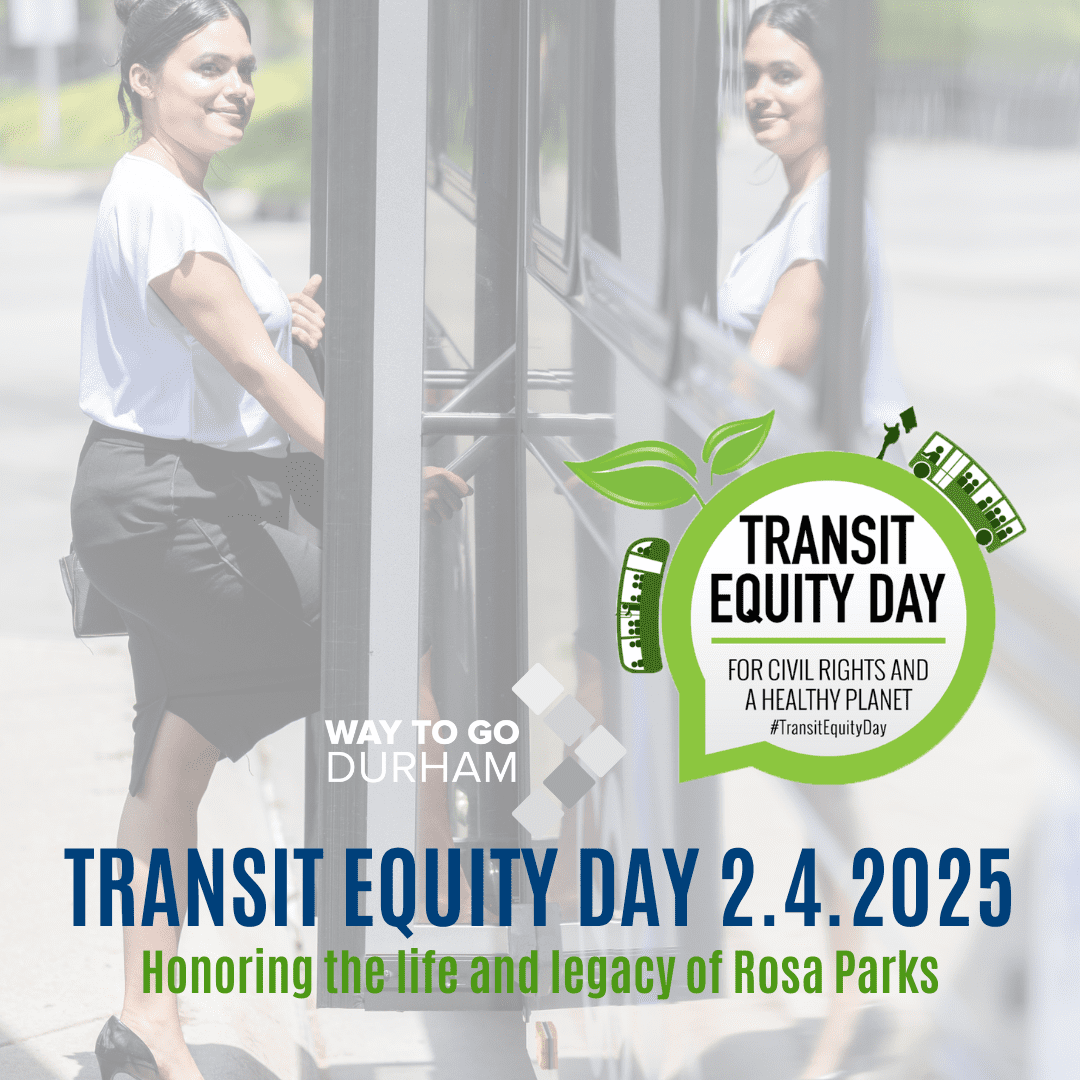Since the Plessy v. Ferguson case of 1896, the fight for equitable access to transportation has continued to pave the way for civil rights advocacy. When Rosa Parks refused to give up her seat on a segregated bus in 1955, her arrest sparked the Montgomery Bus Boycott, a 13-month protest that ended with the Supreme Court declaring segregated buses unconstitutional. From 1896 to 1955 and now in 2025, we recognize Transit Equity Day to honor the organizers who advocated for a world where access to transportation remains equitable. The City of Durham Transportation Department’s commitment to equitable transportation is represented through its three zeroes: zero fatalities, zero emissions, and zero disparity.
Zero Fatalities:
The data on traffic fatalities show that lower-income and communities of color are disproportionally impacted by traffic violence compared to white pedestrians. This is caused by roads that are designed for vehicle speed, with limited safe crossings for pedestrians and inadequate lighting in minority-majority communities. Socioeconomic status also plays a role, as lower-income earners often rely on public transportation, biking, or walking within areas that lack the proper infrastructure to make multi-modal travel safe. The department’s zero fatalities goal analyzes the disparities in traffic crashes through the City’s Vision Zero commitment by dedicating efforts to end serious injuries and fatalities on roadways in Durham. Vision Zero is a multifaceted approach that identifies which streets have the most traffic deaths and serious injuries and identifies changes that can be made to ensure safety and accessibility for all road users, especially those disproportionately impacted by severe crashes. A three-year Vision Zero Action Plan for the City of Durham will be finalized in early Spring 2025 and features crash data, community feedback and action the City will take to achieve its goals to reduce traffic deaths and serious injuries by 50% by 2035 and end traffic deaths and serious injuries by 2045
Zero Emissions:
Historically, communities of color have suffered a lack of clean air due to their proximity to factories, railways, highways, and other sectors, which causes heavy air pollution. The practices aligned with the Zero Emissions initiative are dedicated to improving air quality by investing in our public transit system GoDurham and transitioning our fleet from diesel gas to battery electric buses (zero emissions). Reducing carbon emissions is a key goal for the City through Durham’s Carbon Neutrality and Renewable Energy Action Plan established in 2021. By 2030, the City plans to reduce Greenhouse Gas Emissions (MTCO2e) from City operations by 50% and 100% by 2040.
Zero Disparity:
The Zero Disparity initiative is a commitment to understanding and identifying what barriers exist for our transit riders and allocating resources to ensure our transportation services can connect residents and visitors to the people and places that matter. Our department has a firm understanding of our riders’ struggles; that’s why we’ve advocated for fare-free transit, sought federal grants to improve bus stops and bus stop access along the Holloway Street Corridor and Village Transit Center, and launched the GoDurham Microtransit Program.
Our riders appreciate free transit because it eliminates extra expenses acquired for transportation. Last July, the department was awarded $12 million to implement pedestrian safety improvements along the busiest transit route in the City. The funding will supply improvements for 33 intersections with new ADA curb ramps, two mid-block crossing improvements with new flashing beacons, and upgrades to all 32 bus stops with shelters, lighting, benches, bike racks, and more. Lastly, the new Microtransit program allows riders to take a free shuttle to and from East and North Durham destinations. The service operates as a same-day door-to-door transit program serving areas in which the GoDurham network does not operate.
Happy Transit Equity Day. Today and every day, we honor the work of civil rights icons who advocated transit be accessible for all. We will continue doing our part to ensure it remains that way for future generations of transit riders, cyclists, and pedestrians. The Department’s three zeros show our commitment to keep connecting our residents and visitors to the people and places that matter most.

